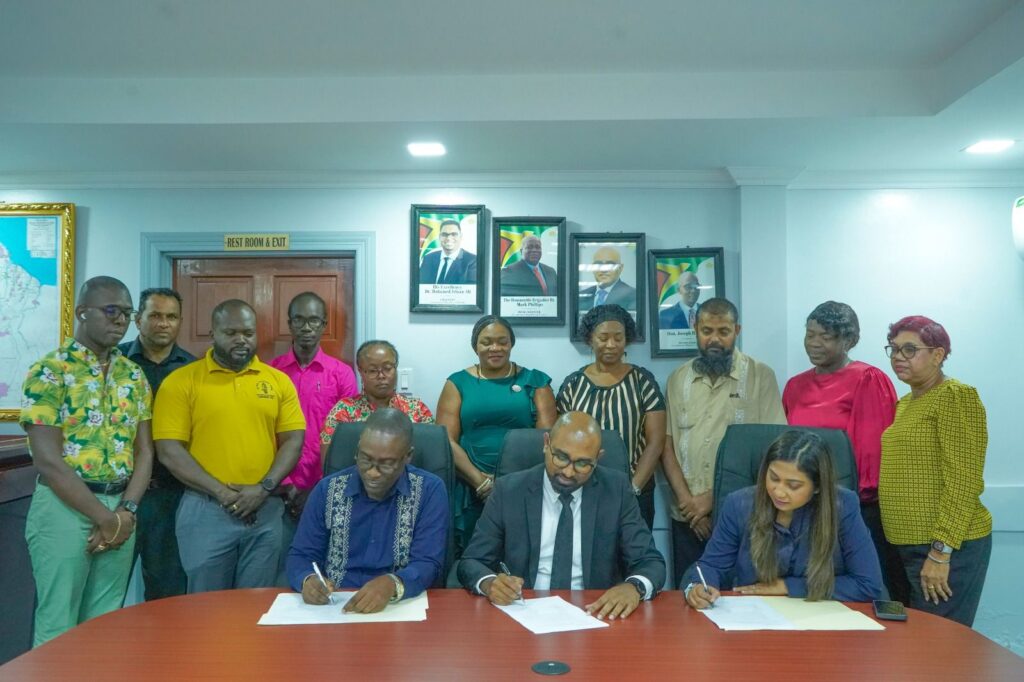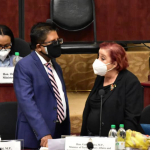
In a joint statement issued on Saturday, eight civil society groups, including the Guyana Human Rights Association, Transparency Guyana, Red Thread and the Guyana Trades Union Congress, called on the Government of Guyana to adopt a more “dignified” approach to dealing with industrial relation matters.
The joint statement zeroed in on the strike action by teachers, which was called off on Friday, with teachers set to return to their classrooms on Tuesday after more than 70 days on strike.
“The signatories of this Statement are calling on the Government to adopt a more dignified and legally defensible approach to resolving future industrial disputes. In the case of the education system to do so threatens to destroy an institution that shaped the current leaders of our society and for better or worse, will determine the future social capital of our Nation”, the statement noted.
Noting that this year marks 148 years since the signing of the Compulsory Education Bill, the groups expressed concern that the strike was treated in a callous and discriminatory manner, in which negotiating processes were prolonged, uninfluenced by either the Judiciary or the principles of collective bargaining.
“Prioritizing dealing directly with teachers rather than their trade union does not bode well for the future of constitutional protections for collective bargaining agreements. Public opinion counted for very little.The experience of the strike reflected an indifference to the long- and short-term costs to teachers, students, families, the education system and the society as a whole”, the joint statement added.
The groups also stated that the Government’s refusal to accept the High Court verdict on the legitimacy of the strike along with threats to appeal to the Caribbean Court of Justice, were delaying tactics to drag out the dispute, which risked poisoning long-term relations between the Ministry and unions.
“Such delays, moreover, benefit from social media’s hollowing out of our capacity to focus on an issue for any length of time”, the groups noted.
The civil society groups also chided Vice President Bharrat Jagdeo’s suggestion that the Government considers paying for affected students to be enrolled in private schools.
“The proposal to pay the fees of students who enroll in private sector education insinuated an assault on public education in general, a form of corrupted power versus ‘the people’. The fundamental concern compelling our statement is to constrain Government coldness to human suffering when addressing political issues”, it was noted.
The groups believe the prolonged strike action may have resulted in the weakening of the education of students, the aggravation of ethnic divisions in the society, and a sharp increase of teachers, especialy male teachers, leaving the public education system, among other concerns.

The Guyana Teachers’ Union (GTU) agreed to call off the strike by teachers on Friday after inking a Terms of Resumption agreement with the Ministry of Education.
Teachers are now expected to return to school by Tuesday, June 25, 2024.
Among the terms of that agreement are that there will be no victimization by either party, there shall be no loss of service for any teacher or educator, and teachers will return to their respective positions held before the strike.
The GTU dropped its demand for a 20% interim payout for teachers ahead of the conciliation.
President of the Guyana Teachers’ Union, Mark Lyte told reporters that the agreement would protect teachers from any form of victimization, and sets the stage for the process of conciliation to commence to hammer out the timeframe for the multi-year package for teachers.











You must be logged in to post a comment Login